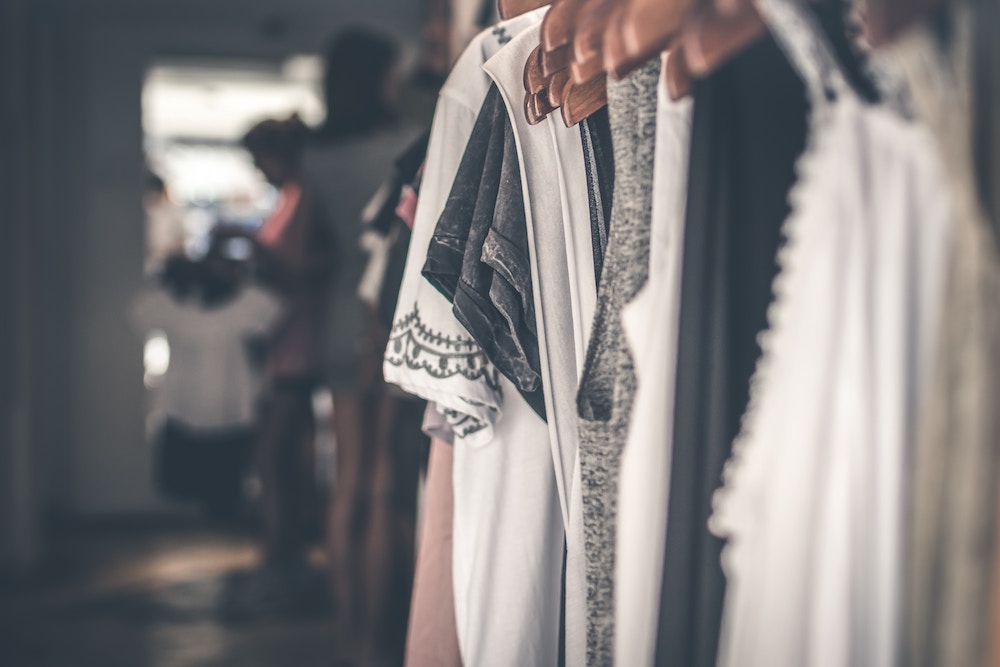Get Rid of Your Clothes
Tiffany Haug, MS, RDN, EDOC
Donate them, throw them out, whatever you do, just make sure that you get rid of them.
I’m talking about those clothes that no longer fit you.
That are sitting in your closet.
Right now.
Those clothes that every so often you have an urge to go try on.
Those clothes that when you do try them on, make you feel worse than you have all day.
Those clothes that make each meal and snack feel like a risk.
Those clothes that make you hope you have good digestion today, because otherwise they won’t fit.
Those clothes that you bought in your eating disorder.
Those clothes that you bought before your weight naturally fluctuated throughout adulthood.
Those clothes that have a hold on you.
Those clothes that taunt you every time you walk into your closet.
You know what clothes in your closet fit the bill.
Sure, they are cute jeans, or a cute top, or whatever.
Sure they cost $$$.
Sure it seems like a waste.
Sure that style is now out of stock in your new current size and it’s a major bummer.
But it’s not a waste.
“Holding on to old clothes that don’t fit can be a powerful roadblock to taking the necessary steps to accept your new and evolving body. ”
And no pair of jeans is worth that.
When I went through my recovery, I got rid of most of my old clothing. And I didn’t do it the eco-friendly way. I legit just threw it all out in trash bags instead of donating it, because at the time I could not wrap my head around being okay with the possibility of someone else wearing these clothes. Shopping for new clothing that fit my new body was super challenging but was a vital step in learning to eventually embody what my body was now.
I admit that to throw that amount of clothes away--knowing that I could replace them--involved privilege. I had the privilege to know that I would be able to replace the clothes that did not fit with ones that would. Some great non-profit organizations like the Garment Project acknowledge that replacing a wardrobe costs money, and they provide women in eating disorder recovery with “sizeless, tagless clothing for free.” Unfortunately, I do not know of any non-profit organizations that provide this resource for men.
I also acknowledge the privilege of being able to find clothes that fit at local clothing stores. For those who live in larger bodies who are wanting to purchase clothes to fit their bodies in recovery, finding clothing that fits in local clothing stores can often be a challenge, which is a social justice issue. However, some online retailers like ASOS, do offer a wide range of straight sizes as well as plus size clothing options in a variety of styles.
At the end of the day, even if you get rid of all of your old clothes and only invest in one or two sets of clothes that fit your now body, that is still a vital step in sending the message to your body that you acknowledge that it is what it is, and that you will find clothing to fit it.
Tiffany Haug, MS, RDN, EDOC is Master's level Dietitian in San Diego who specializes in helping individuals with Eating Disorders make peace with food and their bodies. Tiffany knows that working through recovery can be incredibly hard. Being herself recovered for almost a decade, she is incredibly honored to now be able to give back by supporting her clients along this challenging, but so-very-worth-it journey. In addition to being an Outpatient Eating Disorder Dietitian at a group practice dedicated to exclusively treating eating disorders, Tiffany serves as the Education Chair for the International Association of Eating Disorder Professionals (IAEDP) San Diego Chapter and also works as a Dietitian at Center for Discovery in Del Mar, CA. Learn more about Tiffany here.






















